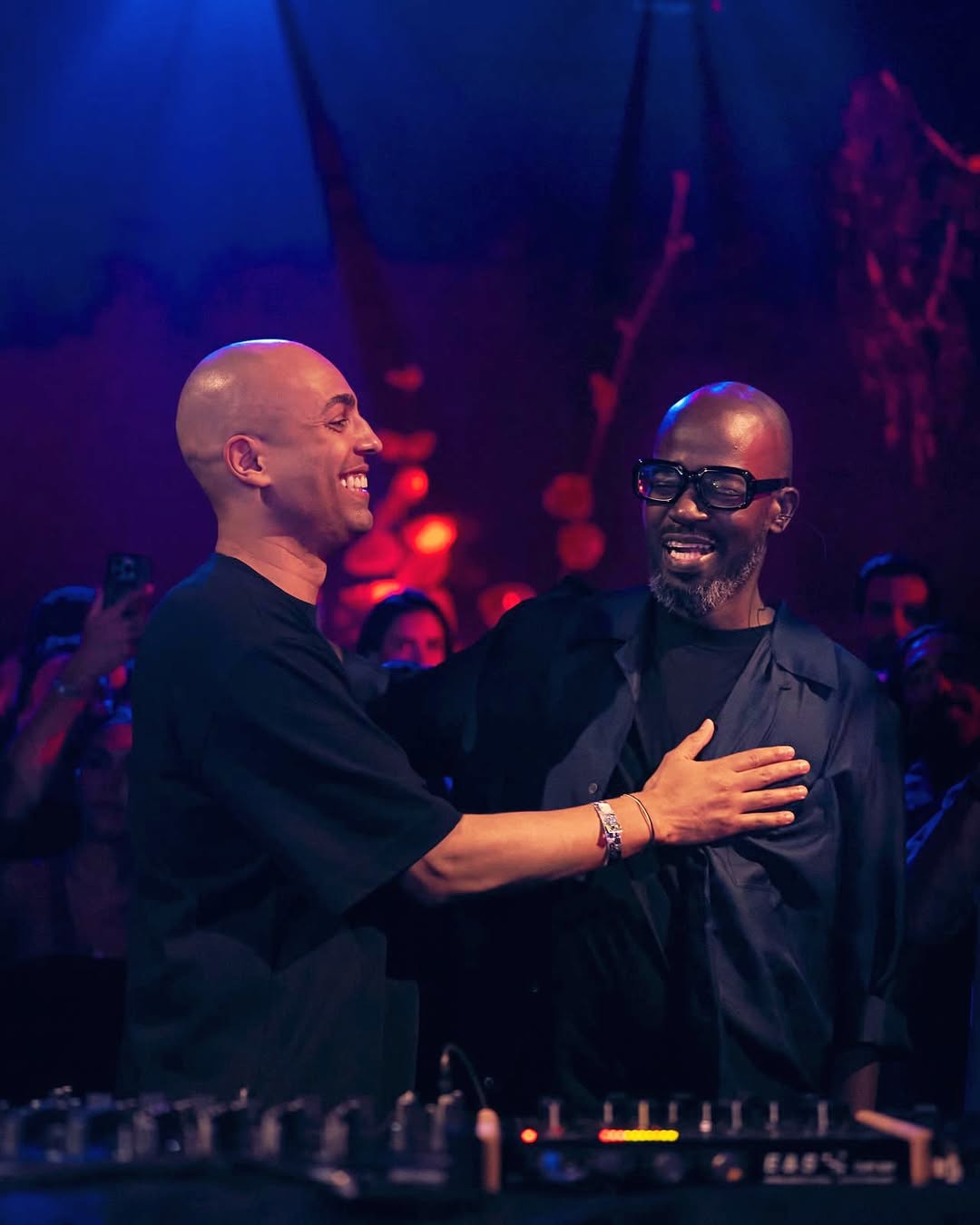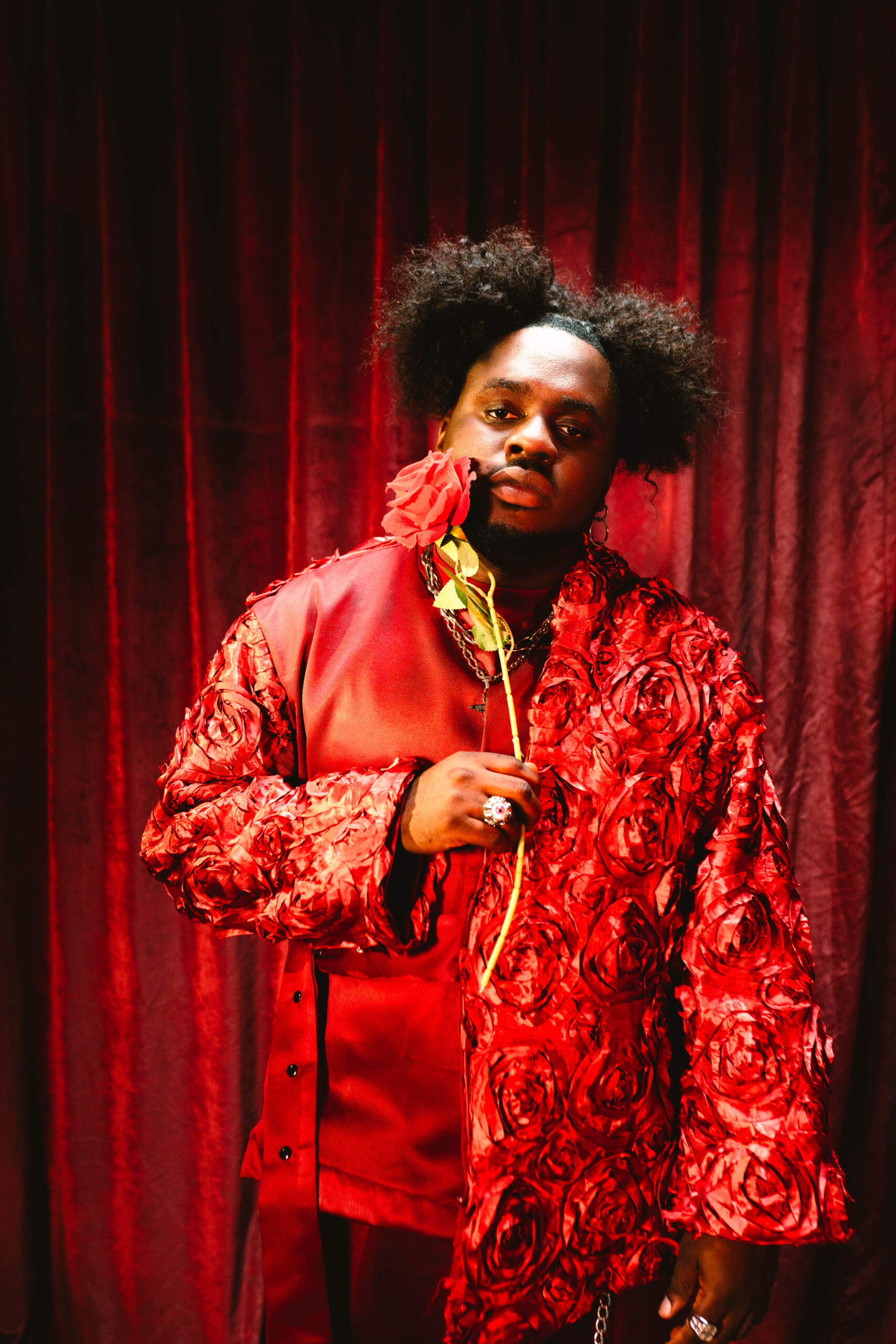Bomi Anifowose
African music has never been a solo act, but history has often cast it as a one-man show. For decades, the plotlines have been written in baritone, male-centered, overhyped, and predictable. But something is shifting. In Kampala’s basement studios, Johannesburg’s rap cyphers, Accra’s jam sessions, Lagos’s underground showcases, and Nairobi’s radical collectives, women are no longer waiting for their cue. They are not side notes; they are the chorus, the hook, and the verse.
These 33 artists are rerouting the circuitry of sound. They splice genres, burn clichés, and compose futures where femininity is not a footnote but a force. From soul healers to rap insurgents, pop experimentalists to Afro-fusion architects, they remind us that the next chapter of African music won’t just be heard, it will be rewritten, remixed, and re-owned by women.
Here are the 33 names pulling the continent’s soundscape into its next frequency.
Niwe Akeine:
Niwe Akeine is a Kampala-based singer-songwriter and self-producing voice in Uganda’s alt-soul/afro-fusion scene. Her work prioritizes atmosphere and lyricism over radio bait, folding jazz and R&B inflections into local melodic threads.
Culturally, she represents a quieter but influential turn in Uganda: women who insist on textured, introspective music as a legitimate route to influence and exportability, not just high-tempo club singles.
Zee Nxumalo:
Zee Nxumalo is an Amapiano-adjacent vocalist whose work folds pop sensibility into township rhythm, bringing a bright, accessible voice to a genre that’s both diffuse and dominant. She balances mainstream appeal with local authenticity.
She’s culturally relevant for helping Amapiano scale as a female-fronted genre: an important corrective in a scene often dominated by male producers and DJs.
Anabel Rose:
Anabel Rose is an Accra-based alt-pop singer whose music leans into delicate arrangements and cross-cultural production. Her songwriting tends to favor intimate themes and modern pop textures.
She’s notable for signaling Accra’s appetite for inward-facing alt-pop, music that privileges lyricism and production nuance over formulaic hitmaking.
Keziah Mallam:
Keziah Mallam is a Nigerian singer-songwriter and producer whose music mixes R&B, alternative textures, and considered songwriting. She’s known for a hands-on approach to craft and a steady, intimate vocal presence.
She’s culturally significant for representing DIY professionalism in Nigeria: artists who write, produce, and manage careers on their own terms rather than waiting for gatekeepers.
We Are Nubia:
We Are Nubia is a Kenyan vocal collective that foregrounds harmony, sisterhood, and collaborative songwriting. Their songs often balance Afropop accessibility with tight vocal arrangements.
Culturally they represent the power of collective identity in Kenyan pop: harmony-first acts that use voice as a tool for political and social cohesion as much as entertainment.
Tai Dai:
Tai Dai operates at the intersection of rap and melody, using sharp bars and a melodic register that blurs conventional gendered expectations of MCing. Her delivery is direct and streetwise, rooted in Kampala’s growing hip-hop circuits.
She matters because she models a different possibility for Ugandan women in hip-hop: not as guests or background singers, but as rappers who claim the cypher and steer its narrative.
Buzzi Lee:
Buzzi Lee is a sharp rapper with streetwise lyricism and a knack for punchy guest verses. Her flow is quick, precise, and designed to cut through club noise while retaining verbal clarity.
Her presence signals the reassertion of women in South African rap, not as novelty acts, but as serious contenders with distinct voices and commercial potential.
Agyeiwaa
Agyeiwaa is an emerging Ghanaian vocalist bridging Afro-soul and contemporary R&B. Her collaborations and singles show an artist comfortable in both intimate ballads and collaborative Afropop contexts.
Culturally, she’s part of Ghana’s expanding female R&B cohort, women who make space for lyrical sensitivity in a landscape often driven by dance and rhythm.
Ṣẹwà:
Sewa is a Nigerian-born, Toronto-based afro-soul artist and multi-instrumentalist with a confessional songwriting voice. Her live shows and early recordings have been praised for their emotional honesty.
Her importance is transnational: she models how diaspora artists can carry Nigerian musicality into global R&B frameworks while maintaining cultural specificity.
Zaituni Wambui:
Zaituni Wambui draws from folk and urban traditions, merging Swahili melodic lines with contemporary arrangements. She’s known for songwriting that nods to oral storytelling practices.
Her cultural significance rests in keeping East African folk elements alive within modern pop frameworks, reminding audiences of long musical lineages.
Likkle Bangi:
Likkle Bangi is an alt-fusion performer whose music channels reggae-inflected cadences, poetic delivery, and the restless energy of Kampala’s underground. She’s known for raw live shows and a refusal to smooth her edges for commercial palatability.
Her cultural weight comes from proving that Kampala’s underground can produce abrasive, boundary-pushing women artists who don’t sanitize themselves for mainstream consumption.
Shia-lun (Raine) Choo:
Shia-lun Raine Choo blends R&B, alt-soul and understated jazz textures; her music leans toward introspective grooves and textured production. She’s the kind of artist whose subtler records reward repeat listening.
She matters because she helps broaden South African R&B’s palette: less glossy export pop, more intimate, alternative soul with room for experimentation.
Mhagan:
Mhagan is a young Ghanaian singer-songwriter carving space in Afro-pop and alternative R&B. Her music is intimate and soulful, with songs like “Twist & Turns” (2025) drawing from personal experiences of loss, uncertainty, and resilience.
Culturally, Mhagan matters because she represents a quieter but no less powerful current in Ghanaian pop: one where emotional candor and soul-driven textures take center stage.
Lodu:
Lodu is a Lagos-based singer whose music leans into soulful, experimental pop and R&B territory. Her aesthetic is understated and focused on mood, vocal tone, and intimate storytelling.
She matters because she embodies an alternative lane in Nigerian music, one that privileges nuanced songwriting and atmosphere over bombastic Afrobeats formulas.
Njerae:
Njerae is a neo-soul/R&B artist with bilingual fluency who balances Swahili and English in her songs. Critically recognised in regional playlists, she brings soulful, soulful stylings that cross borders.
She’s important because she shows how Kenyan artists can operate within global R&B trends while keeping linguistic and cultural specificity intact.
Omani Reign:
Omani Reign moves fluidly between rap and sung hooks, projecting charisma and studio craft in equal measure. Her presence in Kampala’s creative circles marks her as part of a new generation of hybrid performers who defy single-genre labeling.
She’s significant for the way she collapses performance roles, singer, rapper, showwoman, into a single, marketable persona that challenges the industry’s tidy categories.
Elaine:
Elaine is one of South Africa’s most visible R&B exports, a singer whose early independent success translated into international attention. Her emotionally precise vocal style and polished songwriting propelled her into mainstream consciousness.
Culturally, Elaine represents a pathway from local bedroom studios to global R&B stages: female vulnerability packaged with modern production and clear artistic identity.
Veola:
Veola engages hybridity: highlife nods, modern trap rhythms, and pop production. Her music experiments with balance, honoring tradition while testing new sonic avenues.
Her cultural role is as a bridge: she makes space for younger Ghanaian women to pull from heritage without being confined by it.
Teslah Kenya:
Teslah Kenya is a pop-leaning performer whose presence in Nairobi’s club and digital circuits suggests rising commercial traction. Her work is hook-forward and performance oriented.
She matters as part of Nairobi’s new wave of pop stars aiming for both local resonance and wider African market playability.
Vini Mercy:
Vini Mercy offers a soulful, intimate vocal approach that favors emotional clarity over vocal acrobatics. Her songs typically emphasize vulnerability and melody, carving out a quiet counterpoint to Uganda’s club-first output.
By embracing intimacy, she expands the sonic vocabulary available to Ugandan women, showing audiences that emotive, low-tempo music can still be culturally resonant and commercially viable.
Gemma Fassie:
Gemma Fassie carries a legacy surname into contemporary pop and R&B contexts, using that lineage to negotiate both expectation and reinvention. Her music channels mainstream accessibility while nodding to a deeper family history in South African pop.
Her significance is symbolic as much as musical, she links generations and suggests how legacy can be reworked rather than simply inherited.
Kiki Celine:
Kiki Celine is a polished voice emerging from Accra’s creative circles. Her music leans toward contemporary pop and R&B, with an emphasis on melody and production sheen.
She represents the urban Accra aesthetic, cosmopolitan, polished, and globally fluent, a model for pop careers that aim for cross-border appeal.
Liboi:
Liboi is known for a deep, resonant vocal timbre that anchors R&B and Afro-pop productions. Her voice brings gravity to contemporary songs and live sets.
Culturally, Liboi helps diversify the range of female vocal presentations in East Africa by emphasizing lower register power and nuance.
Afrie:
Afrie is a cinematic songwriter whose arrangements suggest visual narratives as much as musical ones. Her production choices lean atmospheric and textured, inviting listeners into layered emotional scenes.
Culturally, Afrie helps reposition African songcraft as storytelling cinema, albums and songs meant to be experienced like short films, not just playlist fodder.
Dee Koala:
Dee Koala is a Cape Town rapper renowned for her isiXhosa-rooted flow, township storytelling, and raw stage energy. She’s transformed local vernacular into a marketable global voice without shedding linguistic specificity.
Her cultural importance is enormous: she locates hip-hop’s power in local languages and experiences, proving that authenticity can be both politically potent and commercially viable.
Brenny:
Brenny projects forward-looking sonics; her tracks hint at futuristic production and an appetite for experimental pop. She positions herself among Ghana’s next-wave producers and vocalists.
Culturally, she signifies ambition: Ghanaian artists no longer simply reproduce continental trends, they attempt to outpace them.
Bridget Blue:
Bridget Blue is an emerging Kenyan pop songwriter whose hookcraft and stage confidence mark her as one to watch. Her output tends toward catchy choruses and mainstream readiness.
She’s part of the cohort proving Nairobi can consistently export pop stars who are both locally rooted and globally formatted.
Patricia Mitirikpwe:
Patricia Mitirikpwe is a storyteller first: her songs map everyday life and familiar characters with plainspoken lyricism. She’s a performer whose strength is narrative clarity and audience connection.
Her importance lies in grounding national identity work in small, relatable details, demonstrating how local stories can be elevated into cultural reference points without theatricality.
K.Keed:
K.Keed is a Cape Town hip-hop artist with a bold, confrontational lyricism and a catalog that leans into trap and gritty rap. Her ascent in streaming and festival circuits underscores her mainstream traction.
She matters for what her success signals: female rappers in South Africa can dominate streaming numbers and reshape the gender balance of hip-hop audiences.
Stella Sena:
Stella Sena is a live-focused performer whose strength is vocal control and festival presence. She’s the type of artist whose reputation is partly built on stagecraft as much as studio output.
She matters because strong live performers help grow local festival economies and build sustainable careers beyond streaming metrics.
Phiwo:
Phiwo is an R&B/neo-soul artist whose music favors soft textures, reflective lyrics, and melodic restraint. Her approach privileges mood and intimate storytelling over spectacle.
She’s culturally significant because she models a different kind of female power, one defined by interiority and sonic subtlety rather than aggression or bravado.
Elsie Raad:
Elsie Raad is a versatile vocalist who blends Ghanaian identity with contemporary pop stylings. Her adaptability makes her a frequent collaborator and a reliable feature on regional playlists.
Her cultural weight is in demonstrating how female Ghanaian vocalists can navigate multiple scenes, commercial pop, alt-pop, and collaborative Afrobeats, without losing an artistic throughline.
Money Badoo:
Money Badoo occupies the space where art pop, rap, and Afrofuturist aesthetics meet. She’s a genre-fluid creative who uses performance, style, and sound to challenge classification.
Her importance lies in refusing neat categorization: as African pop becomes globalized, figures like Money Badoo test the limits of identity, queerness, and futurity in mainstream spaces.
Bridget Blue:
Bridget Blue is an emerging Kenyan pop songwriter whose hookcraft and stage confidence mark her as one to watch. Her output tends toward catchy choruses and mainstream readiness.
She’s part of the cohort proving Nairobi can consistently export pop stars who are both locally rooted and globally formatted.
These 33 women are doing the essential, often invisible work of reimagining African music: they rewrite forms, translate regional identities into global language, and insist that femininity in sound be complex, fierce, vulnerable, and inventive.




